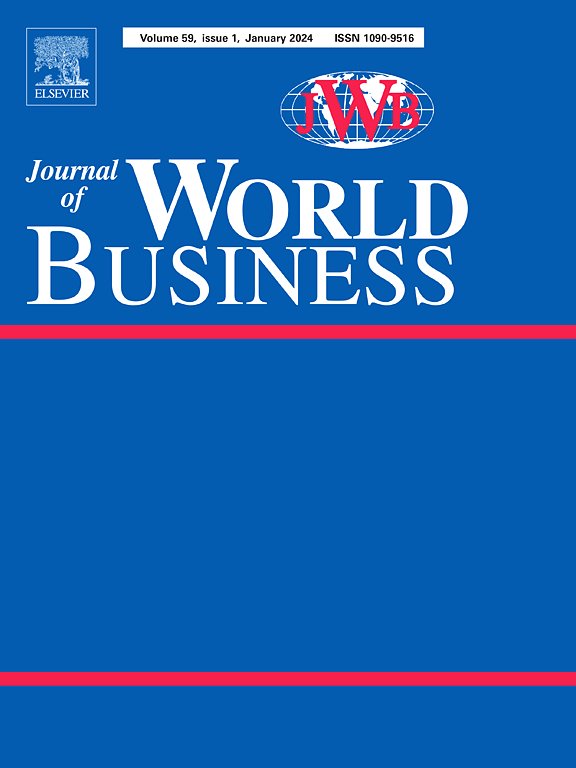Divorce or temporary separation? Lessons from the US’s history of decoupling with China and other nations
IF 8.8
1区 管理学
Q1 BUSINESS
引用次数: 0
Abstract
Binational decoupling—especially between the United States and China—has received growing attention, with most research focused on its current drivers. We instead draw on history to explain why decoupling occurs, showing it is not unprecedented. The US has previously severed ties with Britain, Germany, Japan, the USSR/Russia, and earlier Chinese regimes. Through a comparative historical analysis grounded in a model of political-economic complementarities, we argue that current complementarities deter decoupling, while historical ones create path dependencies that enable future recoupling—even after war. Our findings suggest decoupling is not necessarily permanent and may give way to renewed coupling under favorable conditions.
离婚还是暂时分居?美国与中国和其他国家脱钩的历史教训
两国脱钩——尤其是美国和中国之间的脱钩——受到了越来越多的关注,大多数研究都集中在当前的驱动因素上。相反,我们借鉴历史来解释脱钩发生的原因,表明这并非史无前例。美国此前断绝了与英国、德国、日本、苏联/俄罗斯以及早期中国政权的关系。通过基于政治-经济互补性模型的比较历史分析,我们认为当前的互补性阻止了脱钩,而历史的互补性创造了路径依赖,使未来的再耦合成为可能——即使在战争之后。我们的研究结果表明,脱钩并不一定是永久的,在有利的条件下,可能会让位于新的耦合。
本文章由计算机程序翻译,如有差异,请以英文原文为准。
求助全文
约1分钟内获得全文
求助全文
来源期刊

Journal of World Business
BUSINESS-
CiteScore
16.50
自引率
11.20%
发文量
73
期刊介绍:
The Journal of World Business holds a distinguished position as a leading publication within the realm of International Business. Rooted in a legacy dating back to 1965, when it was established as the Columbia Journal of World Business, JWB is committed to disseminating cutting-edge research that reflects significant advancements in the field. The journal actively seeks submissions that propel new theoretical frameworks and innovative perspectives on International Business phenomena. Aligned with its domain statement, submissions are expected to possess a clear multinational, cross-border, or international comparative focus, while remaining pertinent to the study of management and organizations. JWB particularly encourages submissions that challenge established theories or assumptions, presenting pioneering or counterintuitive findings. With an inclusive approach, the journal welcomes contributions from diverse conceptual and theoretical traditions, encompassing allied social sciences and behavioral sciences. Submissions should either develop new theories or rigorously test existing ones, employing a variety of qualitative, quantitative, or other methodological approaches. While JWB primarily caters to scholars and researchers, it values contributions that explore implications for Multinational Enterprises and their management, as well as ramifications for public policy and the broader societal role of business.
 求助内容:
求助内容: 应助结果提醒方式:
应助结果提醒方式:


